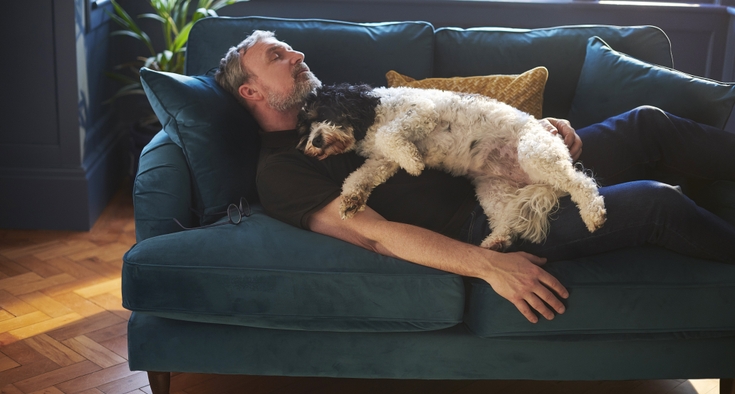No matter how accustomed we are to the concept of daylight saving time, it somehow manages to sneak up on us.
If the time change throws off your sleep, here are some helpful tips to help get your sleep back on track.
Sleep soundly for better health.
One way to help your body adjust to the earlier schedule is to avoid sleeping in when the clocks change. If you sleep in, it makes it harder to get to sleep early enough and get enough sleep. Getting exposure to bright, natural light in the morning after the time changes also helps your internal clock to reset and get back on schedule.
It’s natural to have some trouble falling asleep at the earlier time at first or to feel groggier in the mornings as your internal clock adjusts.
Be extra alert when driving. A few studies have suggested there are more accidents in the week after daylight saving time starts. If you are not feeling alert, do not operate a motor vehicle.
1. Get a regular dose of sunlight
Getting outside in green spaces with trees and nature each day for about 15 minutes can lead to a better night’s sleep. The bright, natural light helps the brain to know that it’s daytime so that later that night it is able to ramp up production of melatonin, the sleep hormone which helps us to fall asleep. Light boxes that simulate sunshine can also be helpful during short winter days.
2. Another reason to eat and drink better
Eating habits can play a role in how well we sleep. Data shows that eating less fiber, more saturated fat and more sugar throughout the day is linked with lighter, less restorative sleep. A diet high in fiber and protein like fruits, vegetables, beans, brown rice and whole grains can improve sleep.
While alcohol may help us fall asleep faster, it can be disruptive to sleep, especially in the second half of the sleep cycle. One glass of wine in the evening with dinner is fine for most people, but anything beyond this can decrease deep sleep and increase arousals from sleep. It takes time for your body to metabolize one drink, so finish your last sip at least two hours before bed.
3. Keep it cool and quiet
Most people sleep best in a slightly cool room because the coolness helps trigger a drop in body temperature, which signals the body to produce melatonin. The ideal room temperature to sleep in for most people is about 65 degrees.
Take time to reflect and sit quietly each day without distractions. It is important to get comfortable in the quiet.
If you are not used to silence, you might find your mind racing at night when it’s time for bed. And if you do find that you can’t shut off your mind once you are in bed, keep a notebook handy and make a list of things you need to accomplish the next day to settle your brain.
4. Don't use your phone or laptop in bed
You want your body to associate your bed with sleep and not television, cell phones, laptops and tablets. The blue light these devices emit can disrupt your sleep cycle.
Practicing relaxation techniques before bed is a good way to wind down, calm the mind, and prepare the body for sleep. Deep breathing helps reduce your heart rate and blood pressure and relaxes your body. Bring down the lights. Dimness signals the biological clock that it’s time to wind down. Making your bed comfortable, clean and inviting can really help as well.
5. When you can’t sleep
Don’t panic when occasional sleeplessness strikes. You can start deep, slow breathing relaxation exercises and focus on just being comfortable. Alternately, you can get out of bed and read a book or magazine with lights dimmed, or something else relaxing and non-stimulating that won’t make your body think it’s time to wake up.
If you have tried all of the lifestyle tips above and are still having difficulties with falling and/or staying asleep, you may want to speak with your primary care physician or consult a sleep specialist.








